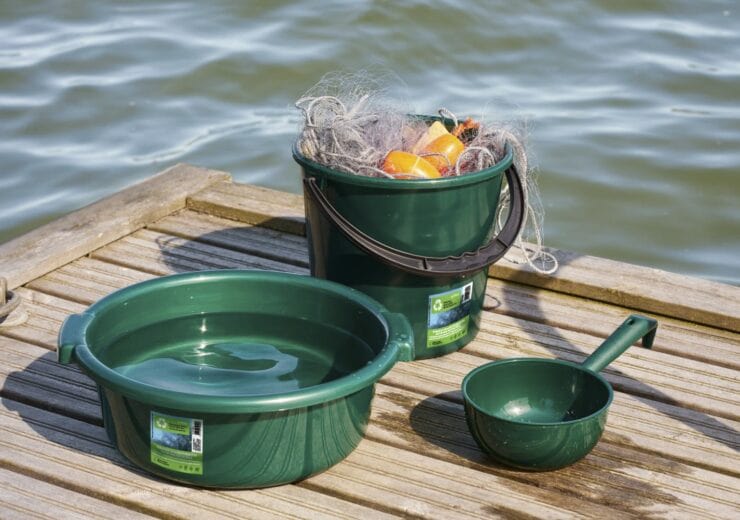UPM Raflatac and Orthex have joined forces to offer household products and their labeling made of recycled plastic saved from ending up as marine litter. The products include buckets, wash bowls and water scoops. To achieve this, both companies are part of value chains that collect the plastic waste and transform it back into raw materials.
Orthex is part of a value chain that produces raw materials from recycled plastic by collecting old fishing nets and ropes from harbors in Scandinavia, in the UK and in Northern Europe. The collected material is sorted, cleaned, shredded, and extruded into raw material pellets, from which the Orthex’s bucket, bowl and scoop products are made. The raw material has up to 94% lower carbon emissions compared to virgin plastic.
“To produce household products from recycled materials requires a great amount of expertise and collaboration in the value chain. By collaborating with UPM Raflatac, we can have even the product labels made from recycled ocean bound plastic. This is the icing on the cake, making our products even more sustainable,” says Alexander Rosenlew, CEO of Orthex.
UPM Raflatac collaborates closely with multiple partners in the value chain to produce the Ocean Action labels. The Ocean Action label materials are the world’s first label materials made from ocean bound plastic waste. The ocean bound plastic waste is abandoned plastic waste recovered from areas up to 50km inland from shores, defined by OBPCert as “at risk of ending up in the ocean”.
At the first stage in the value chain HHI, a Malaysian-based plastic recycling company collects and sorts the ocean bound plastic waste with its partners. HHI then uses chemical recycling to convert the waste into pyrolysis oil. The pyrolysis oil is used by SABIC to create high-quality PP plastic granulates. The plastic granulates are used in the process in which the film manufacturer Taghleef Industries produces the label film that is used to produce the final label material for product labeling.
“Orthex’s products made of old fishing nets are the perfect match for our Ocean Action labels. The combination is a concrete example of how we can create new products from recycled raw materials with close collaboration and some ingenuity within the value chain,” says Eliisa Laurikainen, Business Development Manager from UPM Raflatac.
The plastic waste used in the value chain of making Ocean Action label material is certified under the Zero Plastics Oceans program, and the final label material under ISCC PLUS. The label material is produced using sustainable recycled feedstock, replacing the equivalent amount of virgin fossil resources used in the production process, using a mass balance approach accounting for the amount of sustainable resources. These verify that the Ocean Action label material is traceable and sustainably sourced.





